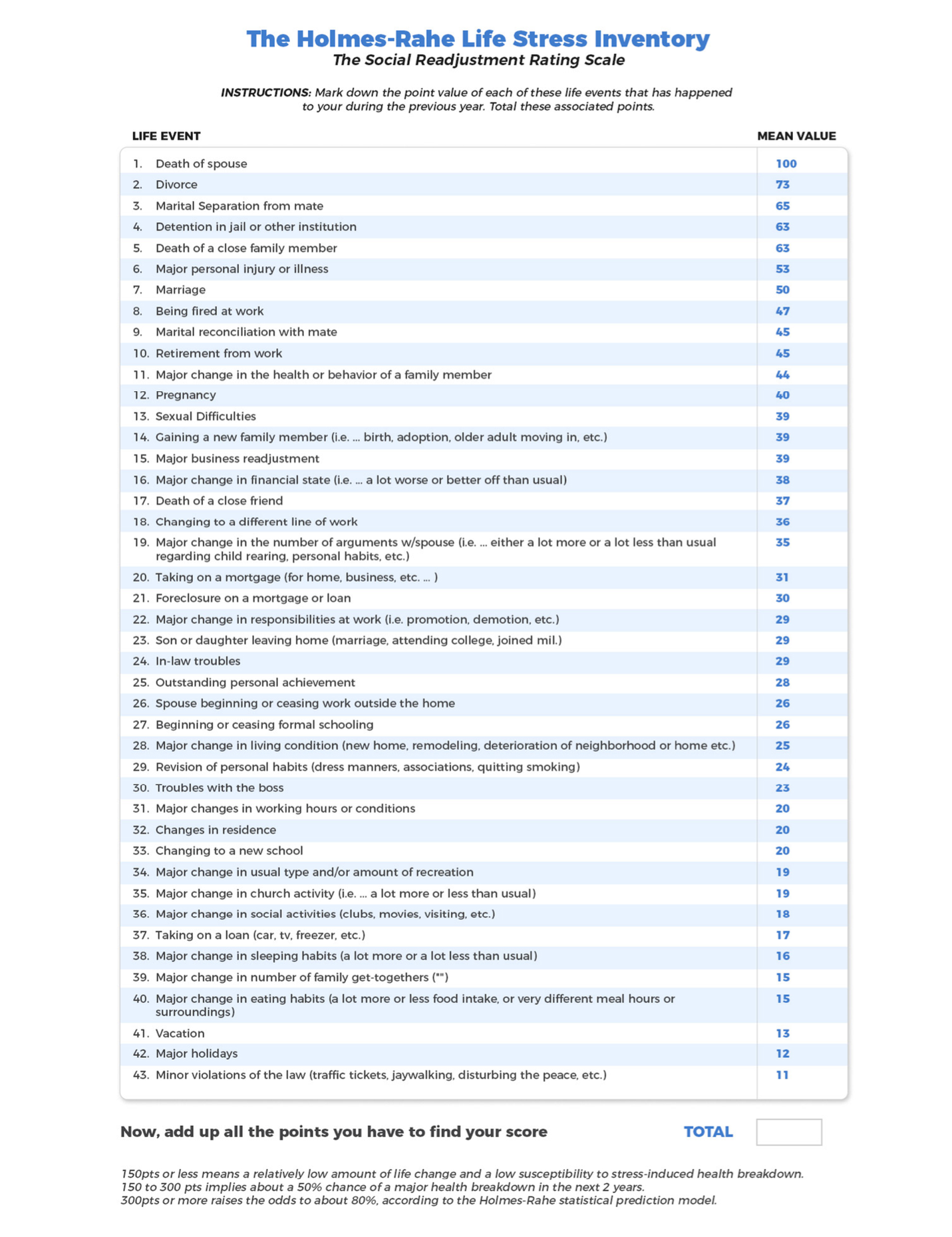Make any changes this year?
There’s a reason why you’re overwhelmed.
Change of any kind — good or bad — creates stress. Change brings about friction as you get back to a consistent rhythm (social scientists refer to this as a “set point”).
Can’t think of a shift you made this year? In the past 365 days, have you:
Switched jobs?
Had a new family member enter your life? (New partners and pets count!)
Remodeled your home, or moved?
Taken on a new financial commitment?
Seen independently, each transition might not seem like a big deal. But the impact of these transitions is cumulative.
How do we know? The more transitions you have in a year, the higher the likelihood that you’ll fall seriously ill.
Back in 1967, psychiatrists Thomas Holmes and Richard Rahe looked at the life events of 5,000 patients and their medical records.
The Holmes-Rahe Life Stress Inventory identified 43 life events that provoke stress, and assigned them all weights: a divorce hits harder than a career success, but they both add up.
If your score totals over 300, their model predicts you have an 80% chance of falling significantly ill in the next 2 years. Even a score of 150 or more doubles your chance. This research has stood the test of time, being replicated cross-culturally in Japan and Malaysia.
So before you start setting those goals for next year, think about how much capacity you really have.
As we reach the end of the year, ask yourself:
What big changes — good and bad — happened in the past year?
How about the past three years?
Did you realize the impact of the change at the time?
How can you recover before taking on even more challenges in the next year?
Did this post change your mindset? Subscribe below for more insights like this one.


